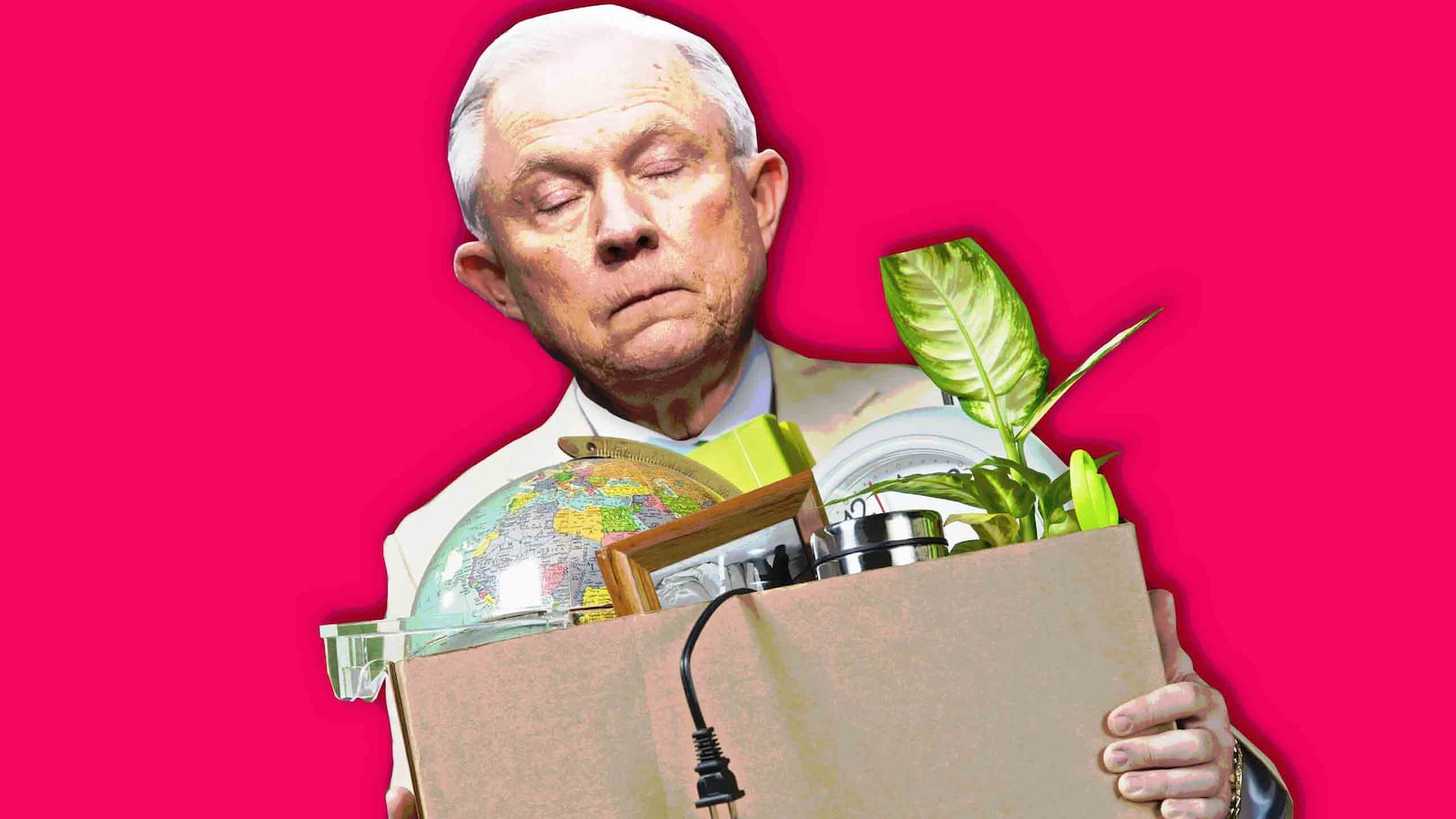The motto of the U.S. Department of Justice is "Qui Pro Domina Justitia Sequitur,” which translates to read “Who prosecutes on behalf of justice.” As long as Attorney General Jeff Sessions is at the helm, it's a very good question.
Last week, Sessions showed us all once again how ill-suited he is to be America’s top law enforcement officer when he revised the Department’s “civil forfeiture policy” to make it easier for law enforcement to seize possessions from people suspected of having ties to crime.
The key word here is “suspected.” Under the law, people don’t have to be charged with a crime to have their home, their vehicle, or their cash seized. The Drug Enforcement Administration, for example, netted $3.2 billion over nine years in cash seizures from people who were never charged with anything, according to the DOJ’s Inspector General.
Sessions’ policy, which rolls back Obama administration reforms, is another incursion of the Trump administration’s DOJ into personal liberty, and another example of how the “justice” part of our criminal justice system is being tossed aside by the people who should be defending it. It’s anti-American, and a situation I know from personal experience.
When I was in my early 20s, I was arrested and sent to Rikers Island, the violent New York City jail nicknamed “Gladiator School.” I did things that I now regret, and my actions caused harm. But the real reason I wound up in Rikers, instead of home, is because I couldn’t afford bail and good counsel. Instead, I spent a year in jail awaiting trial.
What I saw in that year was how our criminal justice system functions in one way for those who have money and resources, and in another way for those without—and those without are often people of color. It’s a long-standing problem that is now exacerbated under Sessions and his appointed cronies.
He claims that asset forfeiture is needed to stop major drug trafficking operations. Sounds reasonable, but research shows that most cash seizures are often as low as a few hundred bucks—not exactly kingpin cash—and tend to be concentrated in the poorest of inner city neighborhoods.
Take Philadelphia. In 2015, an ACLU analysis found that the median value of cash forfeitures was $192, mostly coming from the Kensington neighborhood, one of the city’s poorest.
And forfeiture cases, unlike criminal ones, don’t come with the right to a lawyer, so those poor targets are now stuck in a bureaucratic quagmire and often give up because it’s just too difficult and expensive to fight.
Sessions’ disregard for justice has also led him to scrap a policy put in place by Eric Holder that gave federal prosecutors discretion when it came to sentencing low-level and nonviolent drug offenders. The U.S. government will now as a matter of policy file the most serious available charge against all drug offenders, including people struggling with addiction.
It’s a huge disservice to the millions of men and women in those circumstances, and will do nothing to remedy the greatest civil-rights issue of our time—this country’s tragically high mass incarceration rate, which once again disproportionately affects black, brown, and poor people.
In my work with my nonprofit, JustLeadershipUSA, I have personally worked with hundreds of formerly incarcerated men and women, and so I have a perspective the Jeff Sessions of the world do not. The truth is, these people whose rights are abridged remain members of our society, albeit poorer and less inclined to seek help from authority. In the long run, this weakens every community.
People caught up in the juggernaut of the system, guilty or not, desperately need and deserve the opportunity to reclaim their lives—or at least their things, which have been taken without any real recourse.
Every day I spent at Rikers awaiting trial as a young man, I knew that if I came from a family that could have afforded a fancy lawyer and bail money, I would have been home instead of in that hell hole. I was black and poor, not stupid. Experiences like those breed illegitimacy in the system because the people who know it best—those trapped in it—know that it’s stacked against them.
The good news is Sessions and his comrades are increasingly alone in their thinking. The fight to reform our system has some new allies from the right who see the folly in wasting billions of dollars a year needlessly locking people up. Some of the most vocal voices criticizing Sessions’ forfeiture policy came from his fellow Republicans.
Unlike Sessions, they realize the system must work for all sides to be fair, and that all Americans are protected under the Constitution. The right to your own property is one that is cherished by people on the left and right, and is now being trampled on by the Trump administration.
As long as Jeff Sessions is at the DOJ, we can only hope he will look up one day at the motto of the agency he leads and truly ask himself, “Who prosecutes on behalf of justice?” The thousands whose most cherished or needed possessions are seized and held, or who are wronged by DOJ because of discriminatory policies, are waiting for an answer.
Glenn E. Martin is the President and Founder of JustLeadershipUSA.




